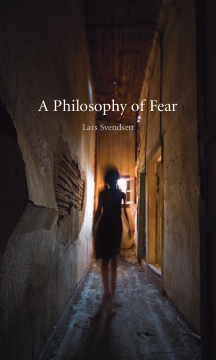
Additional Information
Book Details
Abstract
Surveillance cameras. Airport security lines. Barred store windows. We see manifestations of societal fears everyday, and daily news reports on the latest household danger or raised terror threat level continually stoke our sense of impending doom. In A Philosophy of Fear, Lars Svendsen now explores the underlying ideas and issues behind this powerful emotion, as he investigates how and why fear has insinuated itself into every aspect of modern life.
Svendsen delves into science, politics, sociology, and literature to explore the nature of fear. He examines the biology behind the emotion, from the neuroscience underlying our “fight or flight” instinct to how fear induces us to take irrational actions in our attempts to minimize risk. The book then turns to the political and social realms, investigating the role of fear in the philosophies of Machiavelli and Hobbes, the rise of the modern “risk society,” and how fear has eroded social trust. Entertainment such as the television show “Fear Factor,” competition in extreme sports, and the political use of fear in the ongoing “War on Terror” all come under Svendsen’s probing gaze, as he investigates whether we can ever disentangle ourselves from the continual state of alarm that defines our age.
Svendsen ultimately argues for the possibility of a brighter, less fearful future that is marked by a triumph of humanist optimism. An incisive and thought-provoking meditation, A Philosophy of Fear pulls back the curtain that shrouds dangers imagined and real, forcing us to confront our fears and why we hold to them.
"Not so long ago people lived with the real fear that at any moment a nuclear apocalypse could end life on earth. Today we are afraid of global warming. And financial meltdown. Oh yes, and terrorism, too. Then there's the flu pandemic, not to mention cancer-causing chemicals in our food, street crime and paedophile teachers. In the UK we're so afraid of each other that we have one CCTV camera for every 14 people. But ironically, we are safer and healthier now than at any time in our history. According to Lars Svendsen, a Norwegian philosopher, '"our fear is a by-product of luxury.'The mass media, pressure groups and the nanny state are all guilty of stoking the current climate of paranoia. Fear is a powerful emotion. It can save lives. But it also 'robs us of our freedom' and undermines that essential social glue: trust. Bertrand Russell once said that 'to conquer fear is the beginning of wisdom.' Svendsen agrees. In this brief yet wide-ranging and insightful book, he argues convincingly that we need to replace the risk society with a culture of hope and trust."
— Guardian (UK)“An enjoyable, well-written and compelling tour of philosophical treatments of fear harnessed to an emphasis on the social consequences of living against a background state of fear. Scholarly yet accessible, this book offers subtle philosophical exploration alongside examples from novels, films and other popular media, while avoiding preachiness or doommongering.”
— Times Higher Education"Svendsen encourages the reader to think more laterally about the overwhelming deluge of information that is designed to inspire fear, in the hope that humankind will become more optimistic about its future and more discerning in processing the information we receive. He has succeeded in dissembling our most confronting fears, and asks penetrating questions about why these fears exist, and why people accept and even encourage them. This is an enjoyable read for anyone who prefers to think rather than be told." — M/C Reviews
Lars Svendsen is associate professor in the Department of Philosophy at the University of Bergen. He is the author of numerous books, including Fashion: A Philosophy and A Philosophy of Boredom, both published by Reaktion Books; The Philosophy of Evil; and Man, Morals and Genes: A Critique of Biologism.
